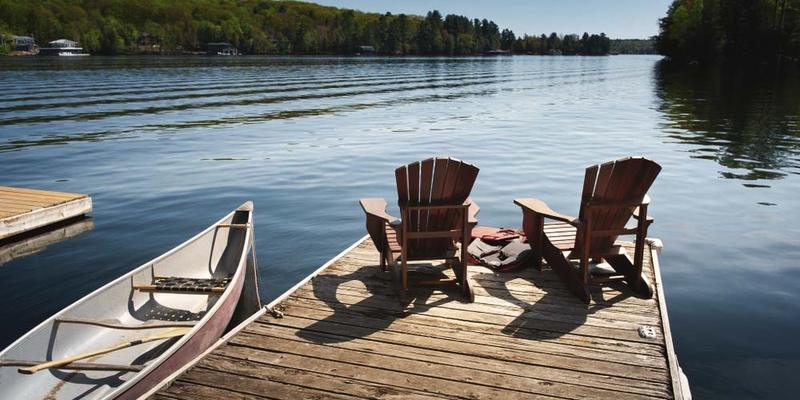
If you are not redirected within 30 seconds, please click here to continue.
Samedi: 10h – 16h HAE

If you are not redirected within 30 seconds, please click here to continue.
If you are not redirected within 30 seconds, please click here to continue.
The risk of waiting to buy a waterfront cottage

Table of Contents
Throughout the pandemic people took refuge in their cottages. For many, they were a last bastion of recreation amid lockdowns.
For those who didn’t own a cottage, their desire to get away from it all only grew. That led rec property prices in many regions to soar over 50% in 12-24 months, particularly for waterfront properties.
With such epic appreciation, would-be buyers now fear overpaying — and no one can blame them. But demographic trends are a tailwind for vacation properties, say analysts.
"People tell me, the cottage market is crazy so I'll just wait until prices fall. And I kind of smile," says Royal LePage President Phil Soper.
“People who have a cottage dream or country living dream will meet limited supply head on and have to change their plans,” he says. "The rate of appreciation will level off but it's unlikely prices will fall [significantly in the foreseeable future]."
A recent poll by his firm found that 3.2 million baby boomers are now looking to move in the next five years and 56% of them want to move to a recreational or rural property. It’s a trend that started in the mid-2010s due to rapid appreciation in cities, Soper explains. "Boomer cars were pointed out of town back then and the pandemic put additional fuel in the tank."
“56% of 3.2 million is a lot of additional potential buyers…when you consider the number of cottage or rural properties in Canada," Soper said. “The sheer volume of baby boomers who are interested in leaving our cities points to a period of continued upward pressure on rec properties.”
Meanwhile, nearly 6 in 10 who want to buy are first-time vacation property buyers. That’s why the likes of RE/MAX are predicting another 5% to 30% jump in cottage prices by December 31, depending on the region.
“Our research confirms that demographically we have the older wave of millennials starting to have disposable income to buy entry-level cottages,” Soper explains. “Then we have the boomers trading their city home for a cottage....And they have the means to buy a more expensive cottage.”
"There are a lot of millennials, a lot of boomers and not a lot of cottages."
That’s especially true for waterfront rec homes within a few hours of big cities. Cottages with a shoreline comprise only a small single-digit percentage of Canadian housing inventory. And surveys show the #1 thing people want in a vacation property, besides affordability, is proximity to water.
That’s why waterfront price growth has been outpacing non-waterfront appreciation by about two percentage points on average, nationwide, per RE/MAX data.
So if you’ve got waterfront cottage dreams and the wherewithal, real estate experts suggest acting on those dreams sooner than later.
Getting Cottage Financing
Minimum down payments range from 5% for winterized properties up to $500,000 with year-round access and full facilities (kitchen, bath, potable water, heating system, etc.), to 20% or more for million+ dollar properties or those with fewer amenities or limited access.
Where borrowers run into the most challenges is with their debt service ratios. Among other things, lenders want to see that your monthly housing expenses—for your home and vacation property combined—account for less than 39% of your gross monthly income. You can find more liberal lenders out there, but then you'll often pay a rate premium, have to put more money down and/or be limited to where and what type of property you buy.
Qualifying could get even tougher as interest rates rise, which is expected to happen in the next year or so. Higher rates not only raise the monthly cost of borrowing but can also make passing the federal mortgage stress test more difficult (because the "qualifying interest rate" goes up).
All these things create opportunity risk for willing and able buyers who defer buying a waterfront cottage. Paying today's extreme prices certainly doesn't feel "right" to a lot of people, but it may in fact be a lesser evil than waiting—if you have rock solid finances.
Get money-saving tips in your inbox.
Stay on top of personal finance tips from our money experts!








